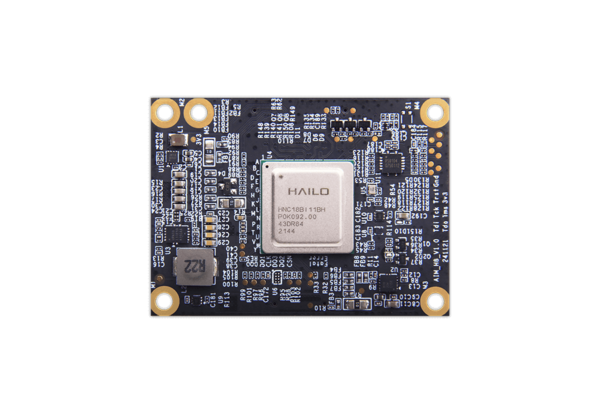
The M.2 AI accelerator is transforming the way computing systems handle artificial intelligence workloads. Designed to fit into the compact M.2 form factor, these accelerators provide remarkable processing power without taking up excessive space. They are ideal for applications ranging from edge computing to high-performance servers, enabling faster AI inference and training processes.
One of the key advantages of the M.2 AI accelerator is its efficiency. By delivering high compute density in a small form factor, it reduces energy consumption while maintaining exceptional performance. This makes it suitable for devices with limited space and strict power constraints, such as embedded systems and AI-enabled laptops.
Another critical feature is its support for multiple AI frameworks and models. Whether performing deep learning tasks like image recognition, natural language processing, or real-time data analysis, the accelerator can handle diverse workloads with minimal latency. Its architecture is optimized to manage parallel processing efficiently, enabling real-time AI computations that were previously possible only on larger hardware setups.
Installation and integration are straightforward due to the M.2 interface, which is widely compatible with modern motherboards. Users can easily upgrade existing systems to enhance AI capabilities without the need for extensive modifications.
In summary, the M.2 AI accelerator offers a compact, powerful, and energy-efficient solution for modern AI computing needs. It bridges the gap between high-performance AI processing and small form factor devices, allowing developers and businesses to implement advanced AI solutions in a wide range of environments. This innovation is redefining how and where AI can be deployed.
Hailo AI Accelerator: Empowering Next-Generation AI Computing
The Hailo AI accelerator is a groundbreaking solution designed to bring high-performance artificial intelligence capabilities to edge devices and embedded systems. Engineered to deliver exceptional efficiency and speed, it allows AI workloads to be processed directly on the device, reducing the need for cloud-based computation and minimizing latency.
One of the standout features of the Hailo AI accelerator is its ability to handle complex deep learning models while maintaining low power consumption. This makes it particularly suitable for applications in autonomous vehicles, smart cameras, robotics, and industrial IoT, where real-time data processing is critical. By optimizing neural network operations, the accelerator ensures high throughput without compromising energy efficiency, enabling devices to perform advanced AI tasks consistently.
The architecture of the Hailo AI accelerator is built for parallel processing, which enhances performance across various AI tasks such as object detection, image segmentation, and natural language processing. It supports multiple AI frameworks, providing developers with flexibility to deploy and scale their models efficiently.
AI Accelerator: Driving High-Performance Artificial Intelligence
An AI accelerator is a specialized hardware device designed to speed up artificial intelligence computations. Unlike traditional processors, AI accelerator are optimized for tasks such as machine learning, deep learning, and neural network processing. They enable faster data analysis, reduced latency, and improved overall efficiency, making them essential for modern AI applications.
One of the key benefits of AI accelerators is their ability to perform parallel processing. This allows them to handle large volumes of data simultaneously, which is crucial for tasks like image recognition, natural language processing, and autonomous decision-making. By offloading these intensive computations from general-purpose CPUs, AI accelerators can significantly enhance performance while reducing energy consumption.
AI accelerators come in various forms, including GPUs, FPGAs, and dedicated AI chips. Each type is tailored to specific workloads and performance requirements. For instance, GPUs excel at parallel computations and training large neural networks, while specialized AI chips are optimized for edge devices where power efficiency and compact design are priorities.
Integration of AI accelerators is straightforward, with support for popular AI frameworks and compatibility with modern computing systems. This allows developers and businesses to deploy AI solutions quickly and efficiently, whether in cloud servers, edge devices, or embedded systems.
